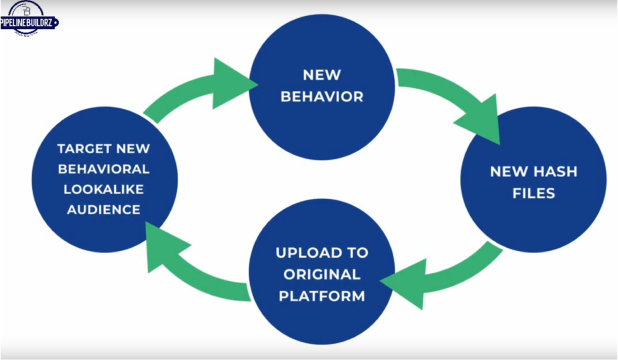Look-alike Modeling

Written by Ido Tanne
What is Look-alike Modeling? Look-alike Modeling is the method of finding out who to advertise what to.
It can be categorized into three different categories. Each category has specific details to it as well.

Demographic

Psycographic

Behavioral
Demographic has:
Age
Sex
Income Level
Marital Status
Psychographic has:
Hobbies
Interests
Habits
Habits
Behavioral has:
Videos Watched
Social Media
Articles Read
Websites Visited
Items Bought
Keyword Searches
Machine Learning AI helps to make behavioral targeting much easier since it can work around the clock and learn while doing so. For example, after spectating 100 different users machine learning AIs can easily predict what a user would like to purchase.
Each User has a Cryptographic Hash, which is a privacy protected small file that identifies a user and the things an advertiser knows about them. It is the tool to identify their behavioral lookalikes. It never expires and it can’t be lost, it is also portable, so it can be used on social media, physical mail, and email.
By looking at one user it’s possible to categorize them under a section to where an advertiser can submit their ads to that category.
How do these advertisements work?
1. Retargeting: After the user visits the site their hash key is submitted to the site and from there they’ll receive ads related to that site. When your hash is spread to more than one site the advertiser will produce a higher income.
2. Create Behavioral Lookalike Audiences:

Changing the amount of time you complete this cycle will help optimize your income (The range goes from 2 months to every week)
3. Leverage Behavioral Lookalikes from Multiple Platforms:

Very similar to the model before, but this time upload to additional platforms to spread the information collection.
